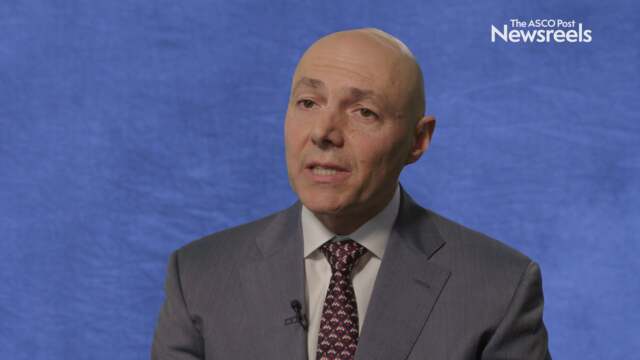Nicholas D. James, PhD, MBBS, on Prostate Cancer: Updates From the STAMPEDE Trial
ESMO 2018 Congress
Nicholas D. James, PhD, MBBS, of University Hospitals Birmingham NHS Trust, discusses study findings on treating metastatic castration-sensitive prostate cancer, including results on radiotherapy and abiraterone (Abstract LBA5_PR).
Ronald de Wit, MD, PhD, of the University Medical Center Rotterdam, discusses phase II findings on the efficacy of pembrolizumab in bacillus Calmette-Guérin–unresponsive bladder cancer with high risk for disease progression.
Jeffrey S. Weber, MD, PhD, of the NYU Langone Perlmutter Cancer Center, discusses how long people with melanoma should be treated with PD-1 blockade and the data on remission rates.
Ezra E.W. Cohen, MD, of the University of California, San Diego, discusses the effectiveness of anti–PD-1 therapy in patients with recurrent head and neck cancer and the studies that might help predict who will benefit, how to combine agents, and ways to reduce long-term toxicity.
Sibylle Lobil, MD, PhD, of the German Breast Group, discusses findings in metastatic breast cancer from the IMpassion130 trial in triple-negative disease and from the PALOMA3 and SOLAR-1 trials in hormone receptor–positive, HER2-negative disease (Abstracts LBA1_PR, LBA2_PR, LBA3_PR).
Laurence Albiges, MD, PhD, of Gustave Roussy, discusses data from the global, phase III JAVELIN trial that compared axitinib plus avelumab vs sunitinib, which could lead to a new standard of care in renal cell carcinoma (Abstract LBA6_PR).





